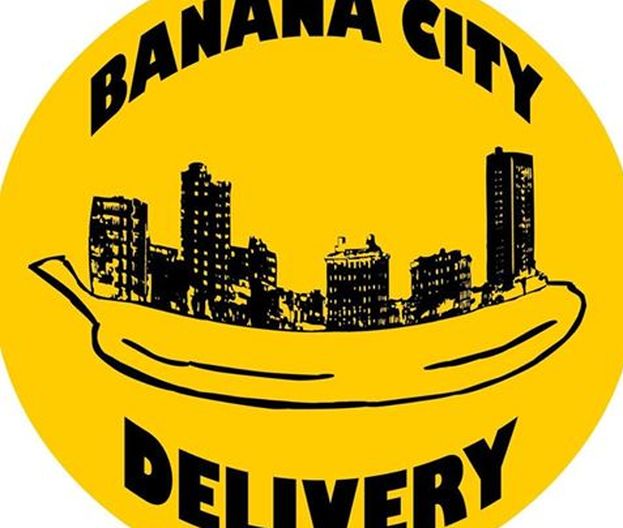
In the days of Uber Eats and Amazon, Cuban entrepreneurs use more traditional methods. Paper ads pasted in public areas, telephone numbers along with photos of delicious dishes, and classifieds on digital sites are part of the strategies of the home delivery business, known on the island by the English word: delivery.
“We started with two motorcycles and we already have five,” says Yosniel, an employee in a business in Havana’s Vibora neighborhood that offers Chinese food to order. “At the beginning we received few calls a day, but since more people heard about our offers, the phone does not stop ringing,” he adds.
AlaMesa, the most complete directory of food services on the island, has so far registered around 930 restaurants, bars, pizzerias and ice cream parlors throughout the country. In Havana, of 458 food retail businesses that appear, at least 66 offer the possibility of home delivery.
Paper ads pasted in public areas, telephone numbers along with photos of delicious dishes, and classifieds on digital sites are part of business strategies
Mamma Mia is one of them. In a beautiful house on 23rd street you can eat Italian-style pizzas and they also prepare the delivery orders for customers from several nearby districts. “When I don’t feel like going out, I phone and have it delivered,” says Victor Manuel Manuel, a dedicated customer of the place and resident of the area.
The diner believes that domestic consumers are becoming more and more enthusiastic about the possibility of ordering from afar. “People are wary if they can’t preview the food they are going to buy, but when the quality of a place has been proven, that distrust diminishes,” he says.
Víctor Manuel works with two friends in an interior design business on his own. “Sometimes we have to spend hours and hours doing drawings or designing on the computer, so having the option of having the food at the door makes the job much easier,” he says.
At the end of January of this year, 539,952 Cubans were self-employed, of whom 59,368 were engaged in the preparation or sale of food. Most in small cafes or very simple places, but sophistication and glamor also has a presence in the sector.
Home deliveries are a private sector fiefdom and for decades very few state-owned restaurants offered such a possibility. The dispatcher who arrived on a motorbike with the pizza in his hand was a “movie thing” for several generations of Cubans, until in 2008 when the opportunities for self-employment were expanded.

Liset and her husband Esteban have a service delivering sushi to order. This April is two years since they began to bring their exotic dishes to the customers’ homes. “We have offers of a roll that includes eight portions accompanied by wasabi, ginger and Japanese soy sauce, and also comes with vegetables,” the owner tells 14ymedio.
After living for five years in Costa Rica, the couple has returned to live on the Island and enters a new terrain. “Foreign businessmen based in the country, diplomats and Cubans who want to try new flavors,” says Esteban, describing his growing clientele.
“The main way we distribute our menu is the digital classified sites, but we also have a small brochure with prices and a ‘call at any time and we’ll take care of you’ advertisement. The text warns that for ‘larger orders for more than 20 people, order 24 hours ahead’.”
“The worst is when we are at a client’s house and he tells us that he made a mistake and that he will not buy the whole order because he does not have enough money,” says Liset. Without a prior reservation through internet or the guarantee of a credit card number in some online service, sellers can be victims of “jokes and false orders,” says the entrepreneur.
However, he says the incidence of these events is “infrequent” and that in general his experience is that business “is positive.” An advantage is that, “you do not need a large place or even have to invest in setting up a restaurant, just a phone line and a good organization in the kitchen.”
The entrepreneurs are planning to implement “a system of points and customer numbers to make ordering faster.”
Loyalty programs, rebates when a customer exceeds a number of orders per month and even small gifts to the most frequent customers, are some practices that are also beginning to spread. “Customers who put in more than two orders a month, we give them an extra menu item,” said Liset and Esteban.
The entrepreneurs are planning to implement “a system of points and customer numbers to make ordering faster.” They believe that in the emerging food sector, those who are “not creative will be left out in the cold.” They are betting on home delivery and “the future of the sale of food in Cuba,” says the seller.
A colorful motorcycle with the emblem of Banana City Delivery was traveling the central avenue of Rancho Boyeros in Havana this Monday. From a collective taxi, a passenger tried to write down the telephone number to place an order. An image that two decades ago was unthinkable on Cuban streets.

No comments:
Post a Comment